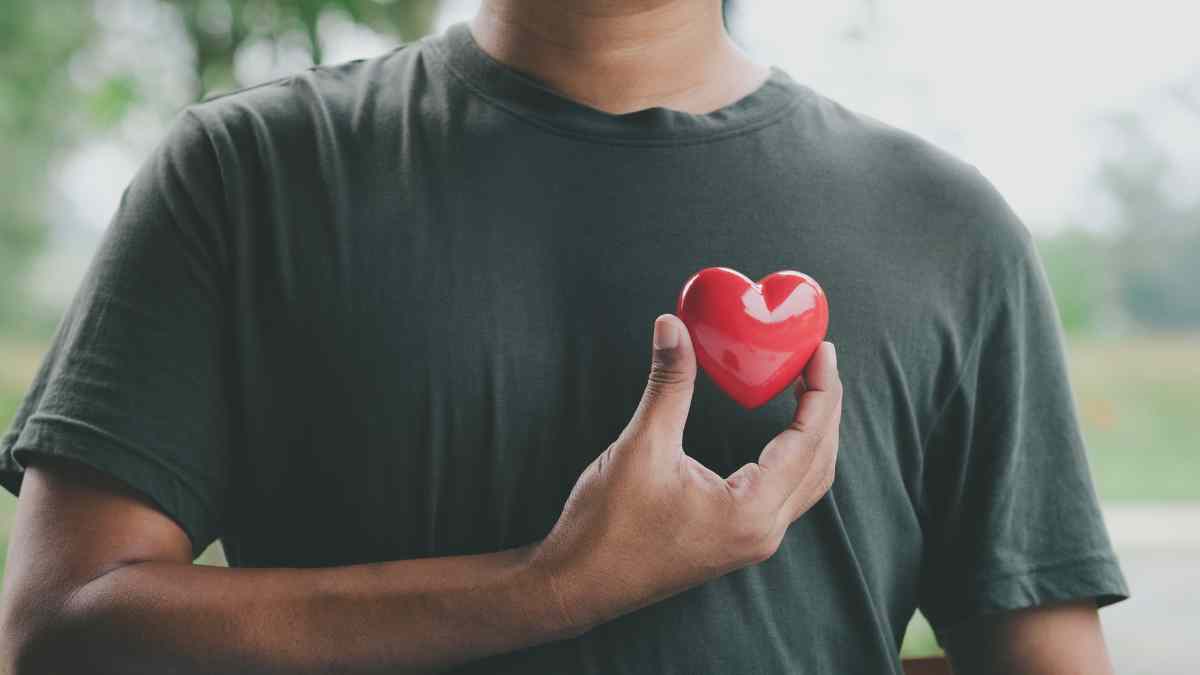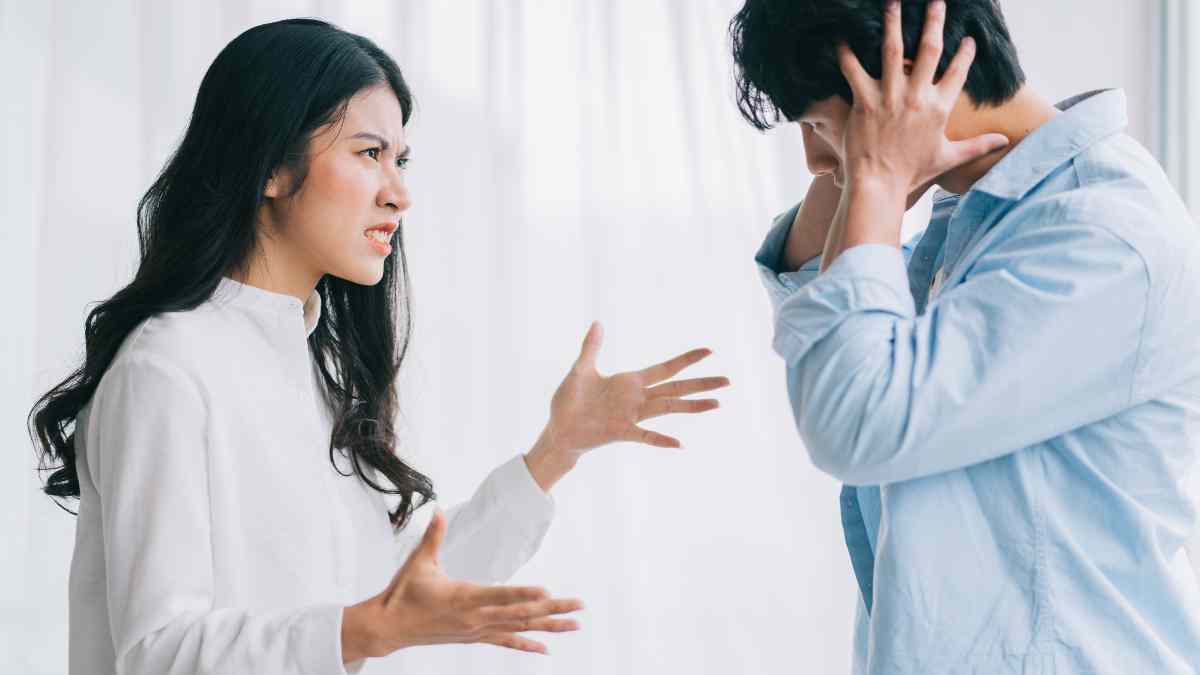
Since my best friend died in 2023, I’ve been considering my life a lot, my relationships, friendships, and so much more. Grief brings with it a deep sense of loneliness, especially when the one who died was a partner or husband. Michael, while not my husband, was like a husband in many ways. We didn’t so much have the romance, but we certainly had the emotional intimacy, and we enjoyed affection over the course of 20 years of living together. Michael taught me that not everyone would leave me or abandon me if things became difficult or challenging. He taught me that there are men out there who are not only loyal and monogamous but also aware. He saw in me someone who was deeply wounded from previous relationships, and my ‘go-to’ experience was that partners left or ended the relationship in a way that felt completely unexpected to me. In many ways, I expected men to do this, so I would push them away to protect myself from the hurt of loving someone who later abandoned me.
Nearly all my previous relationships ended with the guy either ending it over the phone or sending me a letter to call it off. My longest relationship before I lived with Michael was 2 years; he ended it over the phone by telling me he hadn’t been in love with me for the past 6 months of that relationship. I later found out he had been having an affair with a barmaid he worked with at the pub. That ending crushed me a lot, but prior to that, I didn’t have much luck with guys. My self-esteem was very low due to a toxic childhood where the negative affirmation I was taught was that there was something wrong with me, primarily from my mother but also from my father at times. My father was often distant, working a lot; he never had the energy or time for me, and so I started early on to build a toxic profile for what love is.
It wasn’t until recently that I realised that, whereas many may be attracted to men or women who are stable, loyal, considerate, interested in them, and fully involved in the ‘getting to know you’ phase, I was highly attracted to guys who were unavailable, more likely to abandon me when things got tough, would likely criticise me a lot, or wanted to change me. Being ignored was like heroine to me; I was addicted to it because my programme for love was based on what I was taught love was growing up, which was not healthy love whatsoever.
During my grief over the loss of Michael, I’ve gone through every emotion you can think of. Loneliness has been really hard, not having that loving human at home I can talk to daily about anything and everything. We had a balanced relationship in the sense that he liked his space and I liked my space, so we were able to coexist in a way that we both got what we needed as much as possible. As half my adult life was spent living with Michael, with a brief, short relationship of 4 months with a Polish guy, I’ve been feeling a mixture of I don’t want to be alone and craving the physical intimacy, but also scared of getting to know a guy properly again.
Even after you’ve finally been shown what love is in a healthy way, the old way of attraction can still be there, and in moments of trauma or fear, the quick fix and addictive need for a man who won’t be there for me and won’t be involved in getting to know me is attractive. Why? Because it’s safer to be attracted to someone who I don’t have to be intimate with, it’s safer to not let my guard down and let someone in. If it is likely they won’t invest the time in me or a relationship, a part of me feels that is safer than letting my guard down, letting him in, and potentially loving someone who then leaves or, in the experience of the past two years, dies.
Keeping the heart open for love has become something of an enigma to me. I know I need to be open. I know at this time I’m probably not ready for love or a relationship, but I know I want to be ready at some point and would quite like to get to know someone before even diving into a relationship.
Changing My Love Profile

Changing my love profile to a healthy love profile is a new experience for me. I recognise myself in the well-known attachment style of ‘anxious attachment’ because I am so often attracted to those whose attachment style is that of the ‘avoidant’.
Avoidants, much like anxious attachment styles, have all had relationship trauma in the past. Whereas I seek out those who will leave or abandon me on some level, avoidants seek out those of us who are anxious in a sense because we tend to be very emotionally open, something avoidants find hard in themselves to express. So we yearn for what each other has. The avoidant often had a bad experience with intimacy in the past; they may have been judged for expressing themselves more deeply and taught to keep everything inside. In childhood, it may have been safer to do this. For the anxious style, for example, if your primary caregiver was inconsistent with love and affection, sometimes giving, sometimes withholding, this highly unpredictable experience leaves you feeling vulnerable, so you may look to find safety. If you’ve been taught relationships are chaotic, unbalanced, or uncertain, you may find the idea of relationships terrifying. I found my childhood experience led to looking for safety in whatever way I could find it, whereas an avoidant person may have never had their needs met at all in childhood, so self-protection comes in the form of pushing others away and keeping deeper, more intimate feelings to themselves.
“If we associate love with losing ourselves, in relationships we will become avoidant and push our partners away.” – Teal Swan
If you are avoidant in style when in relationships, you may find that you either explode in a temper when conflict arises or you shut off completely, walls come up, and you literally avoid the conflict altogether, shutting your partner out so your partner doesn’t feel that they matter or that their needs matter. You may be highly independent and very self-controlled.
What men with an avoidant attachment style need below
As an anxious person, I tend to want to get closer and work things out; it feels like pain inside if things are left unsaid or unclear. It’s this desperate need for inner and outer resolution, which I guess in many ways is a need to get the feeling of safety back I once had.
HEALING ANXIOUS ATTACHMENT below
This is often why when avoidants and anxious attachment styles come together, it can be hard because we yearn for closeness, and avoidants fear this because they fear enmeshment or losing their sense of self in the relationship.
I find myself sometimes flipping between an avoidant and anxious style of relating. So I’m wondering whether my attachment style is more ‘disorganised attachment’ because if I can feel drawn to someone and feel addicted to the lack of reciprocation, and if they then turn around towards me, I then feel anxious and scared and may pull away. I’m trying to be aware of this so that whoever I am with in the future I don’t do this. I hope I can have this conversation with them so we can both know what we do and be aware of our trauma patterns.
Disorganised attachment
These adults expect and are waiting for the rejection, disappointment, and hurt to come. In their perception, it is inevitable. attachmentproject.com
Our toxic love profiles can be similar or different; there are different styles of relating, according to Dr. Hazan and Dr. Shaver.
Secure attachment, wherein our emotional needs were met in childhood and, as a result, we’re generally trusting of (and feel safe being vulnerable with) others.
Anxious attachment, where our caregiver(s) oscillated between responsive and unavailable, leaving us desperately searching for safety.
Avoidant attachment, wherein our caregiver(s) dismissed or didn’t respond to our needs, resulting in a drive to fiercely protect ourselves by pushing others away.
Disorganised attachment, where our caregiver(s) were a source of fear because they were unpredictable or abusive, and so we try everything under the sun (both anxious and avoidant behaviours) to get our needs met.
Allowing Vulnerability

The problem we both often have is seeing vulnerability as a weakness when it isn’t; it’s a key aspect of intimacy. So if we want true intimacy, we need to allow others and ourselves to be vulnerable in their presence. For avoidants, this can take time; they need to trust that we will care for their need to be independent and have space while they learn to trust us enough to let their shields come down. If we have an anxious attachment style, we need to look at our avoidant partners and realise that they are not avoiding us; it is not about us when they take time out or need space. This will take communication and working out what both partners need at the same time from the offset. Avoidants need to see that their anxious partners are looking for safety and simply need reassured that your time apart doesn’t mean abandonment.
Secure people seek emotional support NOT validation! ~ Margarita Nazarenko
It would be so easy to give up on relationships altogether when we look at all the issues and challenges we have when relating, but we are missing out on so much when we do. While I am valuing the time alone and learning to see who I am without Michael in my world, it is also making me very aware of the value there was in an intimate relationship. The fun and play, as well as working through the challenges when they arise and choosing not to part company when the going gets tough. Michael used to tell me that when people are in relationships, there isn’t just one person and another person in the relationship, we are in relationships with all of their inner children, those that were traumatised, their critical inner parents, their wise adults, and so much more.
Learning to understand our love profile and discovering what our unconscious attractions are based on what we feel love is (even if love means toxicity, rejection, and abandonment), learning to see love in a new healthier way, we are probably on the right track to forming a deeply loving bond with ourselves first and foremost, but also with our significant others.
We deserve love and companionship.
This is what being human is all about. Intimacy and connection.
We were never meant to always be the lone wolf.
Our hearts are meant to be opened, used, held, and wrapped in mutual support and love.
I aim for this in the future, do you?
Liked this post? Support my writing with a one off or regular donation via Paypal below





